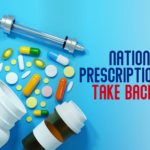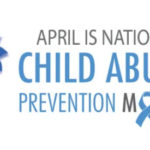By Saleha Butt, M.D.
Chest pain can be frightening. When it happens, it is natural to assume that something is wrong with your heart, but chest pain can signal a variety of other conditions, ranging from digestive disorders to respiratory issues. Unfortunately, it can be hard to distinguish the source of chest pain, and determine if you should head to the ER, wait to see if symptoms subside, or take an antacid. The fail proof reaction to chest pain is to not ignore it, and see a doctor promptly.
Chest pain is the most common symptom of a heart attack or heart disease, and involves a feeling of uncomfortable pressure, squeezing, fullness or pain. Once heart trouble has been ruled out as a possibility, several other conditions that mimic pain due to heart trouble must be considered. These conditions typically involve the digestive, respiratory, or musculoskeletal systems, and while they may not be a health emergency, most require prompt medical treatment to relieve symptoms, and effectively manage the condition to minimize its effects on your overall health.
Chest pain related to a digestive disorder can include:
- Gastroesophageal reflux disease (GERD) – also known as acid reflux or heartburn, is caused when stomach acid washes back up from the stomach into the esophagus. It can cause intense chest pain felt just below the breastbone – especially at night.
- Esophageal spasm – is a disorder of the esophagus that involves abnormal muscle contractions in the tube that carries food to the stomach. These muscle spasms make swallowing difficult and painful, and can cause chest pain.
- Hiatal hernia – occurs when part of the stomach pushes up through the diaphragm into the chest cavity, allowing food and acid to back up and cause heartburn and chest pain.
Chest pain linked to respiratory problems might include:
- Pulmonary embolism – or a blood clot in the lung – which can cause deep chest pain and is accompanied by shortness of breath.
- Pleurisy – the inflammation of the lining around the lung, which can cause sharp chest pain that worsens when you take a deep breath or cough.
Other chest pain can be linked to musculoskeletal disorders, such as:
- Sore muscles/muscle strain – also known as chest wall pain. It is often felt by athletes who begin a new or different exercise regime or increase the amount of exercise.
- Injured ribs/pinched nerves – a broken or cracked rib or pinched nerve can cause chest pain, especially when you cough or breathe deeply.
Even if you suspect your chest pain is not heart-related, check with a doctor before attempting self-treatment at home.
Dr. Saleha Butt is a primary care provider at Buffalo Medical Group, 3900 N. Buffalo Road, Orchard Park. She is accepting new patients at 716-656-4485.











